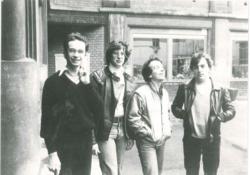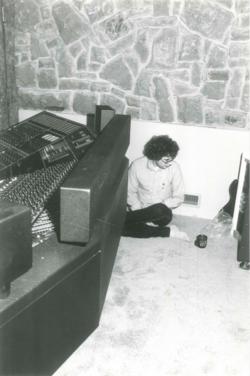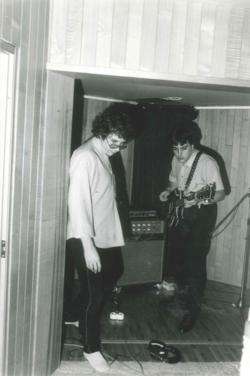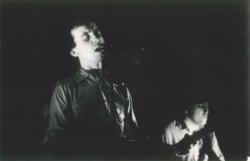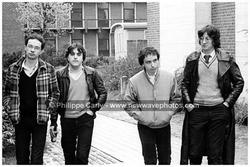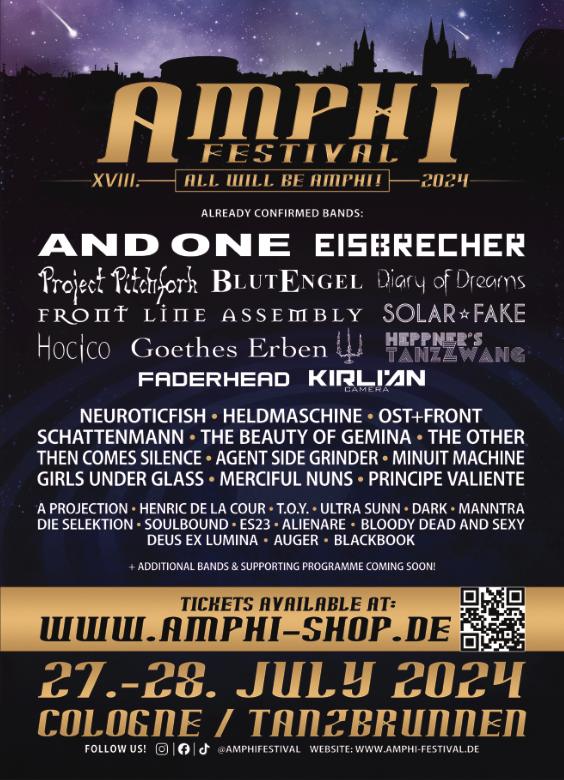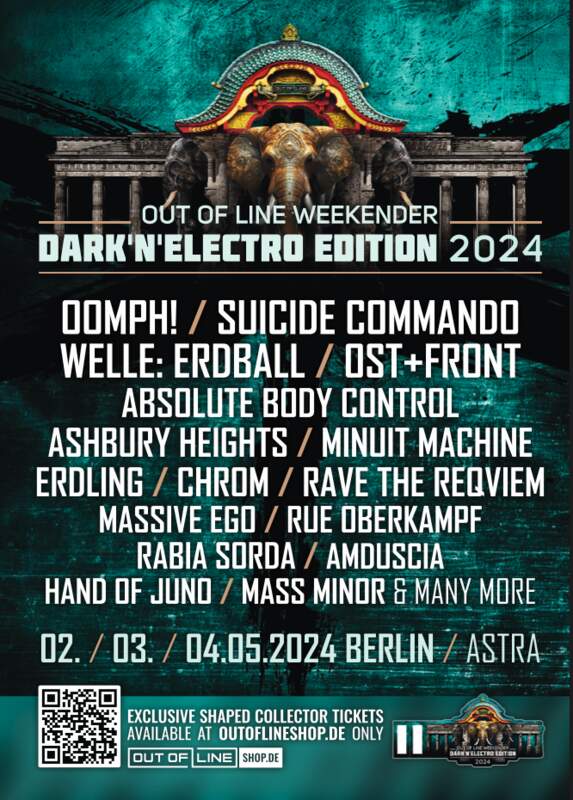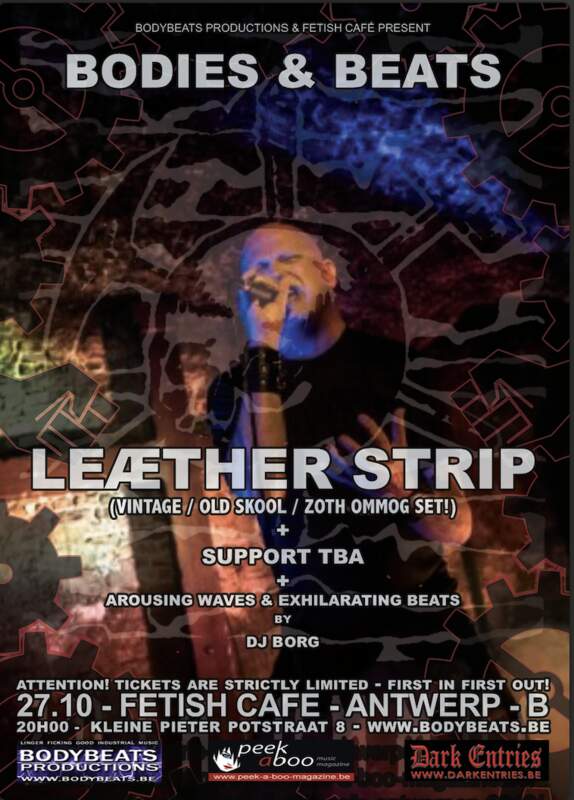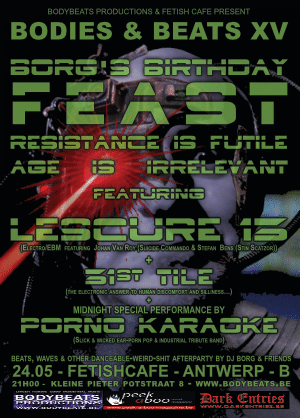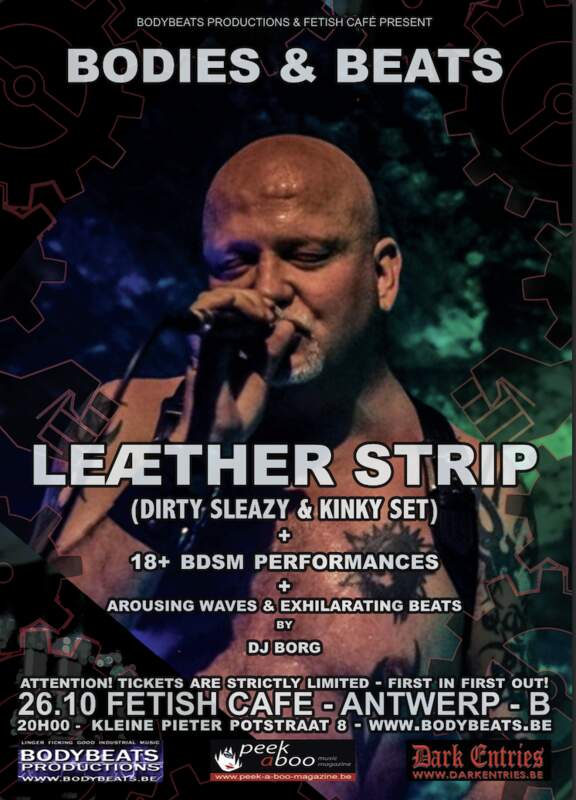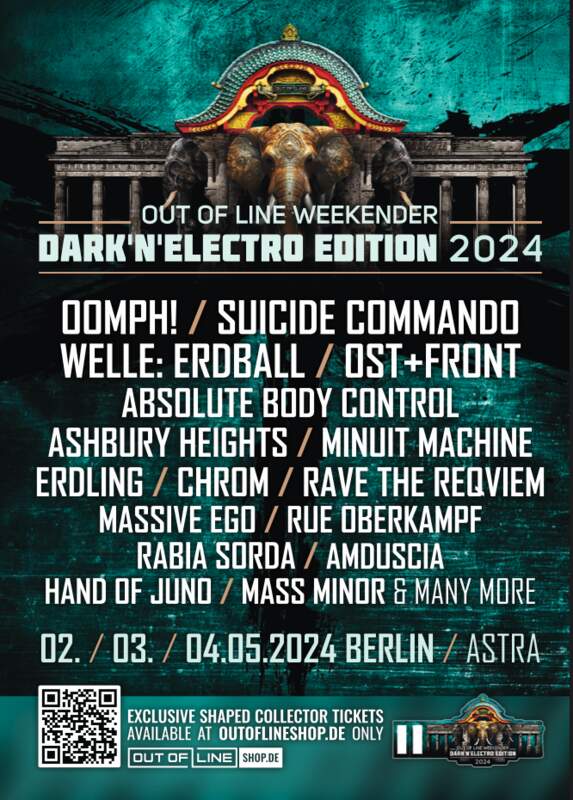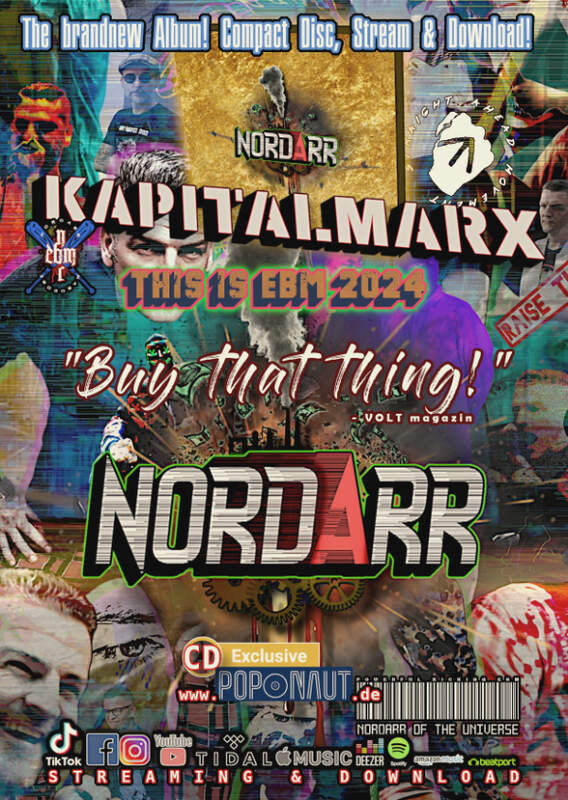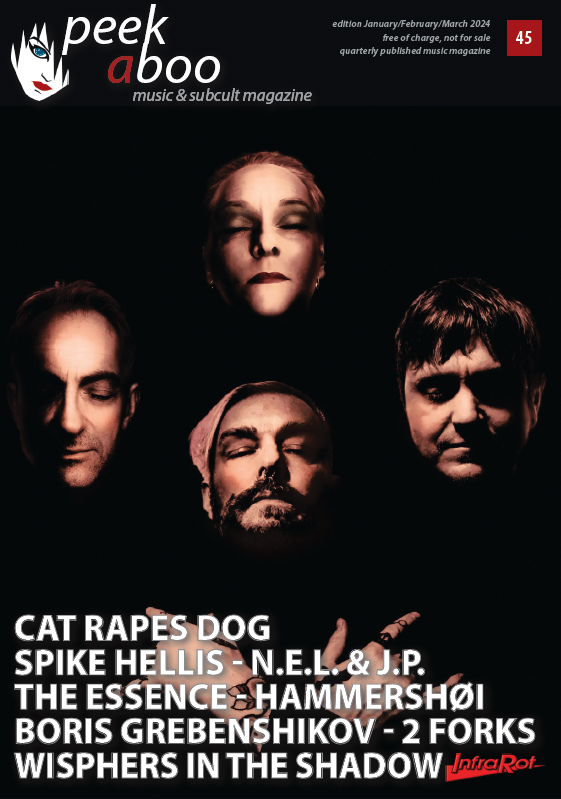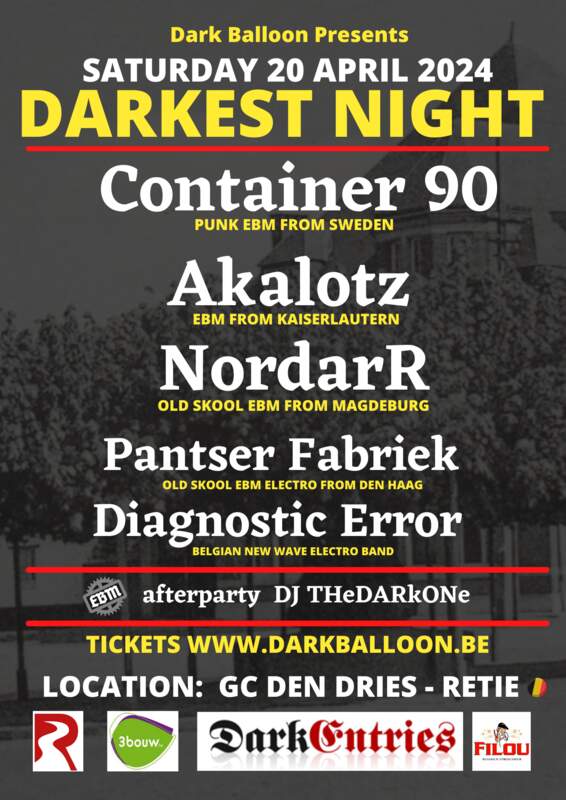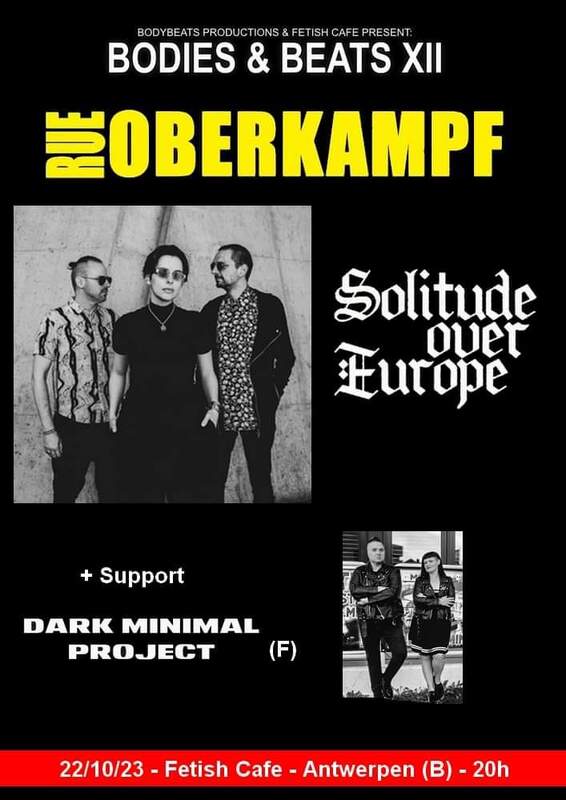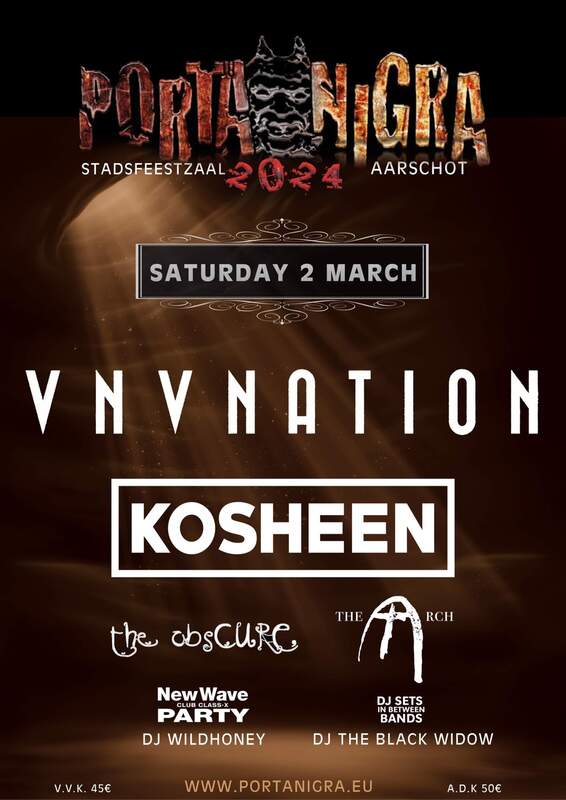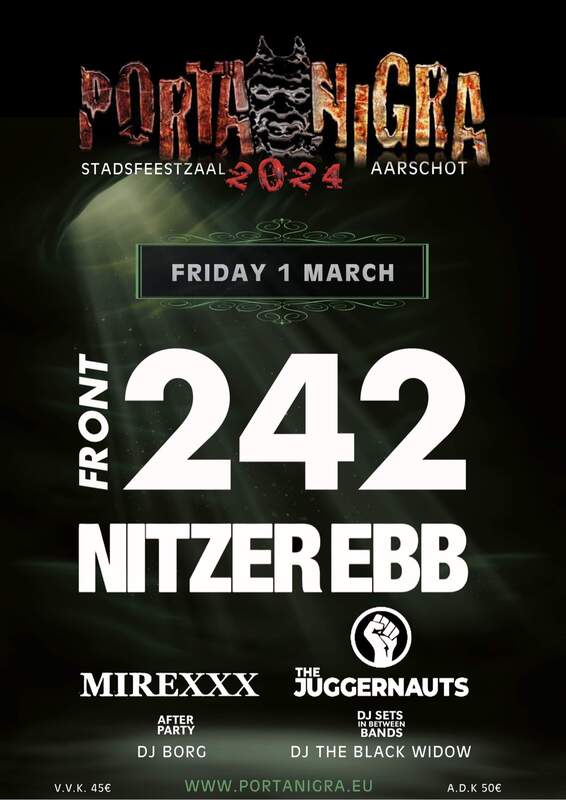THE NAMES
Part II: I still have a letter at home from Factory that starts with: ‘Of course there is no money’.
17/07/2015, Xavier KRUTH
If The Names are still around today, it is certainly due to their period at Factory Records, in which they worked with Joy Division-producer Martin Hannett to produce songs as ‘Calcutta’, ‘Nightshift’, ‘Light’ and ‘The Astronaut’. In the first part of our interview, front man Michel Sordinia told us about the starting years of the band, until the deal with Factory was closed with a simple handshake. In this second part, he tells us everything about the period that formed the legacy of the band.
After the deal with Factory, the first thing you did was going to Manchester to record a single.
We were surprised by the process. We didn’t have to sign anything with Factory. ‘This is the contract, it’s my hand, et cetera.’ And then being told: ‘You are expected in Manchester. The studio is booked on those dates. Martin Hannett will be meet you at the hotel.’ A lot of people around us were saying: ‘Is this for real? You don’t have a contract. Will the hotel be booked…’ We took the ferry with the van and all the stuff. It was quite an adventure. As always with Factory, everything creative was provided. I knew we were going to record at the Strawberry Studios, but it didn’t ring a bell. When we entered the studio on the day before we started recording, Martin gave us a visit. I saw all the platinum records. 10CC. I could remember when I was I young boy, trying in vain to seduce girls while dancing on ‘I’m not in love’. (laughs) And we were going to record in the same studio where they recorded that song. They were setting new standards at the time in how to use a recording facility. That was amazing. So there was money. I still have a letter at home from Tony Wilson - he was an old school writing man - of which the first line goes: ‘Of course there is no money’. (laughs) There was a lot of money, but everything went into the creative process.
You got nothing.
Well, we had the huge pleasure of being there, doing things, meeting Martin - who was going to work with us even when he was fighting Factory in court - we got gigs, we had the John Peel show… I don’t know if we would have ended up doing a John Peel session without having been on Factory. I have totally no regrets about it.
So you met Martin Hannett and you were quite satisfied…
We were very impressed. He was very easy-going, telling jokes, making an effort to be understandable to us… When he was talking to Rob Gretton (manager of Joy Division, xk) in this North-English accent, it was very hard to follow. He was very nice, his wife was around and he totally trusted us. We had some demo’s and he said ‘Why demo’s?’…
He did some suggestions like to use xylophone on ‘Nightshift’…
Yes, he welcomed the ideas that we had. It was quite fun, except we didn’t know if he would approve. The xylophone was an idea from Marc. He took it from his son. The son is 33 now, but he was just a baby then and he had this xylophone toy. We also had the idea of having the ‘underwater’ thing on ‘Swimming’. I went to Martin and said: ‘Maybe you will think it is totally preposterous, but I would like to have no silence between the songs and rather an ‘underwater’ effect.’ It ended up putting microphones in the toilet at Strawberry’s and having the sink filled with water. The sound was produced by Martin toiling around with toilet paper in the water. He was totally up to this kind of ideas. Not only did he approve, he brought more ideas of that kind. Whenever something was out of the usual way, he would love it. But he was quite directive at the same time. For instance, he had me to play on his own bass during the recording session for ‘Nightshift’: ‘I wish I could speak your language’. I was very impressed. It was a bass totally made of iron. It was not very easy to play. He told me ‘It’s hard, isn’t it?’
- Yes, it’s hard.
- But it’s going to be you playing on the record. My bass, but you.
He took the bass.
- You know, this bass has played on a lot of songs that you know from Factory.
And there were not that many, because ‘Nightshift’ was Fac29. There were not that many records until then. He actually told me two songs that are very well known on which it’s him playing the bass. I said: ‘I will never tell, Martin.’
- I know you won’t… (with a very persuasive voice, laughs)
Martin Aston - the guy from Mojo - interviewed me for like two hours including three quarters about drugs at Factory. And he wanted me to reveal the songs. He said: ‘Anyway, I’m pretty sure that I know’ and he mentioned two titles and I said: ‘Well, maybe one of them…’ (laughs) It was really great working with Martin. I must say that we were young and impressed. Reaching the mixing stage, he totally took the process in hand, and brilliantly so. You should know that the mixing of both ‘Nightshift’ and ‘I wish I could speak your language’ wasn’t finished when we returned home.
Yes, he liked to work alone.
He finished it by himself. Annick Honoré (from Disques du crépuscule & Factory Benelux, xk) called us one day and asked if she could come to the rehearsal. ‘I have a surprise for you!’ She had the mix. ‘Nightshift’, we recognised because it started like we played it, but ‘I wish I could speak your language’ was recorded with a lot of keyboards, and he reduced it to a sort of a skeleton. With great effect. I liked it, but the same cannot be said of everybody in the band. The only thing that I resented about the mix from Martin - but he wouldn’t change it - was on ‘Swimming’. It was ‘Discovery’, a song that we are going to do again on stage because it’s huge. It was the starting song on the album, but with his production, on his mix, it’s anything but huge. You have to play it on high volume to get the effect that we wanted to have. But apart from that, he was a genius en he totally loved our music. It was great.
Then there’s this anecdote about The Names - or The No-Names - scheduled to play in The Beach Club in Manchester…
Yes, that famous gig that was supposed to be organised for us and that turned out to be something else (big voice) and important in the history of rock-n-roll.
There are a lot of different versions of that story.
I heard so many stories. Apparently, the thing was organised, except it didn’t reach the stage where we knew about it. We don’t have a proper management. We were reacting to propositions to play. We never went after gigs. My religion on this is: yes, it might have been planned, but it was just planned and then they changed.
You didn’t know about it?
We didn’t know. Maybe some other people around us knew. I totally forgot about it. But when we started again in 2007, and I was asked about it after the first new Factory Night at Plan K, I said I would check. I should have asked Annick Honoré about it, but I didn’t. I should have talked to Michel Duval, or to whoever had links with Factory. I don’t know, but too many people are talking about it for it to be totally untrue. We never knew about it, or I was told without listening to it. But it was not like: ‘Oh, what happened with our concert proposal?’
So the story is that another band took the stage that evening. It was Peter Hook, Steven Morris and Bernard Sumner from Joy Division (Ian Curtis committed suicide a fem months earlier, but the remaining band members decided to go on under a new name, xk). But they didn’t change the name from The Names to NO Names, which is one of the versions.
That is one of the versions. I can’t confirm.
Peter Hook clearly said they played under the name The Names, and later on they would become New Order.
Is anyone opposed to that? No. At the same time, I have talked to Peter a lot and he seems to have a very clear memory. He remembered visiting us in the studio; he remembered things that I almost forgot about. You know what they say at the end of one of my favourite movies, The Man Who Shot Liberty Valence? John Ford says: ‘If the legend is better than the truth, print the legend.’ That’s a lesson in journalism. But I am very surprised that no poster of that exists. If they are saying that they played under The Names. The Names should have been printed somewhere, on the tickets or whatever. When I see people stealing posters, stealing setlists… everything reappears. So that’s one thing I still have doubts about. Whatever, we didn’t play, they did.
The next song recorded with Martin Hannet was ‘Calcutta’…
It was not recorded with him. He couldn’t come to Brussels. He wanted, though, especially because there was a brand new studio, the ICP, which is still one of the best traditional studios in Europe. We were one of the first bands to record there. Again, there was money for creative stuff, because it was very expensive. We went there with our stage sound engineer Robert Van Hove. We recorded three songs: ‘Calcutta’, ‘Postcards’ and finally ‘Music For Someone’, which was to appear on the ‘The Fruit Of The Original Sin’- compilation on disques du crépuscule. Michel Duval asked me to do something to pay homage to Marguerite Duras, the writer and filmmaker. The ‘someone’ in the song is Marguerite Duras. Most people don’t know about that. Even the band didn’t know. They were like ‘who is Marguerite Duras?’ (laughs) So we recorded the three songs, we mixed ‘Music For Someone’ and the two other songs were sent. Martin did a brilliant job on Calcutta.
And it took eight months to finish it…
But that is not entirely due to Martin bein slow ith it. We were also waiting for Benoît Hennebert’s (great) art work for the cover to be finished and delivered…
So we come to 1982, which is the great year for you. You just mentioned the ‘Fruit Of Original Sin’-project by Les disques du crepuscule. You also had the first tape by Crépuscule - ‘From Brussels With Love’ - to which you also contributed. And they had this idea of doing the ‘dialogue north-south tour’ in 1982…
Which was a great idea! Crazy times! We could be sitting here until tomorrow if I was to tell you all the anecdotes. Gathering people who had actually nothing in common was a great idea. There were also acts that we were close to, with whom we also shared instruments. But what could we have in common with Paul Haig? (ex-Josef K, xk) One anecdote. You can’t escape. We were going to play Les Bains-Douches in Paris, where you had incredible visions of Richard Jobson doing is act with his violin in the swimming pool, with his trousers up because his feet were in the water. There was electricity, we were afraid that he was going to fry. It was magical. That night at the Bains-Douches, there was going to be a live coverage on France Inter. It’s like RTBF- or VRT-radio in France. Bernard Lenoir ran the program. He was the only guy in France who was able to devote two hours to that kind of music. He would talk for one hour about the music, and then there would be fifteen minutes of live coverage. Suddenly, it became very political. Every band, especially Paul Haig, was doing everything to be there on stage during these fifteen minutes. They wanted to play top of the bill every night, except that night. They wanted us to play top of the bill. It was so silly. It turned out that due to technical problems or whatever, we were on stage during these bloody fifteen minutes. We played ‘Nightshift’ and two other songs live on France Inter. Alas, I have no recording of that.
But the concept of the tour was exactly not to play your most famous songs?
Yes, but we changed it. You know what they were telling us? Michel Duval and Katalin Kolosy? That it should be ‘The Names go cabaret’. We were good soldiers and we thought it could be interesting, so we started to work on lighter versions. A little back to The Velvet Underground. If they could do it, so did we… But then before going to Paris, we hit Lyon. We had a huge following there. We playing at the same place where we played one year before with Jo Lemaire, and we stole the show because there were a lot of students, intellectuals who were totally into our music. Much more than into Jo Lemaire. These people knew about us, and after 15 minutes they started to shout for the songs they expected us to play. In the bloody middle of the set, Marc and I conferred and decided to go full impact. Nobody said anything about it, because we were the kind guys. I remember Tuxedomoon was magical on that evening. They played on our instruments - except of course for Blaine’s violin - because some of the staff didn’t arrive in time. After the show, we went to Michel and the others and we told them we were going to finish the tour this way. The people were happy, we were happy. There must be some recordings of The Names go cabaret.
The version I heard is that The Names go cabaret later became the Night Side of ‘Swimming’.
It’s possible. I can’t remember.
It hadn’t been decided yet to have a Day Side and a Night Side for the future record?
No, and the record was to be on Factory Benelux. It should have stayed that way, but Michel Duval - who held both Factory Benelux and Les disques du crépuscule - came to me and explained that it would help him if we would release it with Crépuscule. And I said that if it could help him, and as he was paying for the whole thing, why not. I’m probably not as nice anymore as I was then. I should have sticked to a release on Factory Benelux. He was influencing me emotionally, manipulating me… (laughs)
And the idea of a Day Side and a Night Side was Hannett’s idea or yours?
It was my idea, just as the order of the songs. It was in French: ‘face diurne’ and ‘face nocturne’. It was a little snobbish. The only input that Martin ever had on that sort of conceptual aspects was with ‘Nightshift’. ‘Nightshift’ was to be the B-side when we entered Strawberrys. When he had mixed it, ‘Nightshift’ became the A-side and ‘I Wish I Could Speak Your Language’ became the B-side. That was Martin’s decision, and he was right about it.
There was also a video shot for the song ‘Nightshift’, which you didn’t like.
I sort of lived through that process. Katalin Kolosy was directing that video. I like to see it because people like it. We are even playing our live-shows with the colours that are in the video. But some aspects were rather awkward. She couldn’t really direct us well, and the editing was clumsily made. She had to convince me about the rather heavy references to Joy Division. We were playing among the huge furnaces in the cellar of a school building. There were the bricks and the door-effect that were in the video of Joy Division. I found that a little childish at the time. But they were producing it and Katalin was so nice. We did it and were not very concerned. Now I’m happy that we have it, because we don’t have a lot of visual things from that time.
Let’s go back to ‘Swimming’. You seem to like the last song - ‘Light’ - a lot. You even made a follow-up song ‘Lights’ for the new album.
I must confess, but I’m not the only one. At least ten major people who were crucial to the history of the band say that it is the best song we have. I have always felt that. It is also one of the most interesting things that Martin did with us. We wanted to go huge with the guitars, with lots of feedback, to go wild and then tame it a bit. The song came from a dream, from a vision of being a father with a child. I wasn’t a father at that time. It was one of my best memories of being in the studio with Martin at that time. I wanted huge guitars. Marc had this habit of having two or three amps in a row to achieve that. And Martin added to that. He had at least two amps going full volume. It was unbearable in the guitar booth. And we have this very precious picture of Martin kneeling before Marc. Marc is trying to control the feedback, while Martin is shaking the guitar like a madman. That’s how you get that fantastic sound. One of the things we wanted to do on ‘Stranger Than You’ is to get that feeling back. Huge guitars and feedback. The things that Marc always loved. We decided to let him free with that this time. And now I am a father, I have kids that are already in their teens. My son will be eighteen soon. So I wanted to have some sort of a follow-up to ‘Light’. It was even to open the album at some point, to mark the point that there’s a continuity between ‘Swimming’ and the new album. Whatever happened in the meantime is of less importance.
And then there’s the last single that you did with Factory: The Astronaut.
It was one of the best experiences we had. First, Martin came to Belgium. We couldn’t do that when we were recording ‘Calcutta’. Very few people know that after some disappointment about the mix of ‘Swimming’ of some members of the band and in the entourage - including at Crépuscule -, some people pushed us into working with another producer. I mentioned ‘Discovery’, but to some people the whole A-side was not what it should have been. John Leckie - whom we would have worked with if we would have signed with Fiction - was approached and did agree about doing a session with us. I had a conversation with Martin, then with his wife and then again with Martin. He said ‘You can’t do that to me. I am with you from the start, and I want to continue working with you…’ I was really touched, because Martin was still the great producer he was. I resisted the idea of changing producers. I just said to Michel Duval: ‘This time, let us do it in Belgium and let’s do it together till the end of the process.’ Which we did. It was much more collaborative, not only in terms of recording - the recording was always very collaborative, also in the mixing. I insisted on the mixing being done back to back with the recording. I had very strong ideas about how it should work. And Martin had very strong ideas too. We got together with the same basic aims about the song. And Martin really loved ‘The Astronaut’. He kept repeating: ‘Yes, they will love that one at BBC!’ Except that the song didn’t do well commercially. It is still one of the songs that I like most in everything that we did. We are still playing it. When we are playing it… it’s huge. It’s very difficult to express my emotions while playing it. There are a lot of things in the song. It was a great experience having Martin here, his wife (and manager at that time). It was a very happy session. We didn’t know that it was going to be our last collaboration and we didn’t know that it would be the last recording of that era, the great era of The Names’ original myth. It seems to be like the perfect ending. Now. (laughs)
I was also thinking about the Bowie reference…
It has to do with my girlfriend Michèle, who is now my wife. She is the hugest Bowie fan in Belgium. Well, there might be a competition. Think about this: we came back from the Cannes festival twice - and I was a young film critic, so it was important for me to be there - to see Bowie playing at Forest National. We took a plane and we didn’t have any money. It was that or going on vacation or whatever… Bowie was around all the time. It might not be very modest, but I wanted to write my own ‘Space Oddity’. It was conscious, and there were hints in it, like using the acoustic guitar. The only person who knew that at the time was Marc. I don’t know if I mentioned it to Martin.
And I have another Bowie reference for you, on the new album. The first song I have written for the new album, two and a half year ago, is ‘Life Again’. Marc was challenging me to write a Names-song that would remind us of ‘Heroes’. ‘Write something heroic!’ The tempo, the low singing to the high pitch singing, the e-bow guitar… It’s not aping Bowie, but it was a challenge Marc gave me. I’m a great admirer of Bowie, but he was never really an influence, except for ‘The Astronaut’ and ‘Life Again’.
So, is Major Tom a junkie or not?
Well! You’ve waited one hour and twenty minutes to start talking about drugs. They were used at Factory, but I’m not going to tell you in detail. Of course he was, but I wasn’t. You know that in that era, within the Factory settings and with the lyrics of ‘Swimming’, I had interviews with journalists that didn’t believe me when I was saying that I didn’t take anything while writing that song or recording that one. I didn’t. I was so scared about losing control, which is something that I’m not scared about anymore. But at that time, it really scared me. I had some friends that were lost to alcohol and drugs at a young age. People didn’t even start to die at Factory, except for Ian, but that was not due to drug problems. But drugs were around everywhere, hugely available. And now, you know what… I have some regrets not to have done it. (laughs)
There’s a citation from the song ‘Zeroes’, it appeared years later on the ‘Monsters Next door’-album: ‘There was snow inside the studio’
That’s an homage to Martin, of course. The use of drugs was totally transparent. In ‘Nowherians’ there’s a line: ‘was it in stockport or was I stoned?’ With question mark!
That wasn’t you?
No, of course not, but the question was asked… I loved doing ‘Zeroes’, and I was a little bit sad that not so many people did catch that it was an homage to Martin. It’s pretty clear for insiders. Also in the ‘the wall of sound’ (complete citation: ‘Zerous chose to climb the wall of sound’, xk). Martin adored Phil Spector. While we were recording ‘(This is) Harmony’ - it was huge in the studio, the walls were trembling - he told us: ‘the thing that I love so much about you, is that with all the instruments you put in - we recorded much more instruments that he kept in the mix - we could really have our own wall of sound.’ (laughs)
One last citation, it’s from ‘Die Mauer is no more’ on the new album: ‘off went the lights, then the white screen comes alive’
That’s movies, of course.
But I thought that ‘Off went the lights’ also referred to the end of The Names in 1983…
No. But maybe it’s there. But that part of the song is totally something that happened. Some things are fictional. There is one character that comes from two characters. Some characters were there, others not. Bowie wasn’t there, which is a disappointment. (laughs) He’s only in the lyrics.
So how did The Names finish in 1983?
In a very stupid way. Well, I’m saying stupid now. We were on the verge of being kicked out of the family home. We had finished our studies and we - Marc and I - were thinking of living with the person we loved. We had to face the idea of finding an honest work. Since there was no money associated with what we did… except for the concerts, which brought a little money. There was more money coming in from the Crépuscule releases than for ‘Nightshift’, where there was none. There was social pressure. And we had the disappointment of ‘Swimming’ not getting the attention it should have got. ‘Calcutta’ got a lot of attention, like ‘Nightshift’. But the album… The critics here at home… I remember the review in Télé Moustique saying: ‘They got away from Belgium. It’s probably a great album, but their faith will be decided by the UK audience.’ And it was. When we went to play The Venue lately - which we played at the time also - somebody wrote us that he saw us at the time and that it was a great concert. And I thought ‘Oh, it was you!’ (laughs) Maybe there were 25 people in the room, and it’s a huge old ballroom. It’s a great venue, but it’s better when it’s crowded. We weren’t carried by people’s enthusiasm anymore. We could have continued and recorded a new album, since the label was eager to do so. I can’t remember clearly being discouraged or whatever, but probably the enthusiasm was broken among us. It was not like we stopped and everyone said ‘no, please stay’. It was like disappearing from the scene and doing something else… getting jobs. Now money isn’t a problem anymore. We have a proposal for 5 or 6 dates on the west coast in the US. It’s obvious that we will barely cover the costs, but there’s no way we won’t do it. If the costs are not covered, we are going to live it. That’s the new freedom. We had the freedom when we were kids and students, living at home with or parents. It was just reality catching up and not being as successful as some people could now think we were, with things like Factory and ‘Calcutta’.
You decided it at one point, or was it not a clear decision?
It was a clear decision. We had some projects, we decided to stop them in a common agreement. Christophe was at the ULB, he wanted to be a professor and now he is. But we kept seeing each other, and that led to wanting to do things again.
Pictures:
- Early The Names pic
- Martin Hannett
- Martin Hannett and Marc deprez
- The Names live
- The Names go for a walk
Xavier KRUTH
17/07/2015
Next interviews
THE NAMES • Part III: I decided that I liked the darkest me. But I wanted to live with darkest me, not die.
ANDY THE KID • Set trends, don’t follow them.
MACHINISTA • Every time you create music you find new better tricks, so let´s hope we can push the sound even more for the future.
IIOIOIOII • I want to reach as many people as possible and share my music with them
SOUND & VISION • Sound & Vision is more than ever a combination of new wave and other musical influences that have crossed my path over the past thirty years.
NAïVE • We decided to approach our sound slightly...
THE INSIGHT • I don’t fucking mind about being played in France or being famous. I just want to play the music I want
EXIT STRATEGY • The themes of Exit Strategy vary but all of the material embraces the need for change in the human race and its approach to life on mother earth
PORTION CONTROL • We have always been keen users of technology and this continues to this day.
STIN SCATZOR • Our set on Eurorock will be short, but SOLID.
Other reviews from THE NAMES
THE NAMES • We're lucky to have everyone still alive and well, unlike many of our friends of Factory records.
THE NAMES • Part I: Some people went to the nearby field with papers and threw cow shit at us.
THE NAMES • Part III: I decided that I liked the darkest me. But I wanted to live with darkest me, not die.


